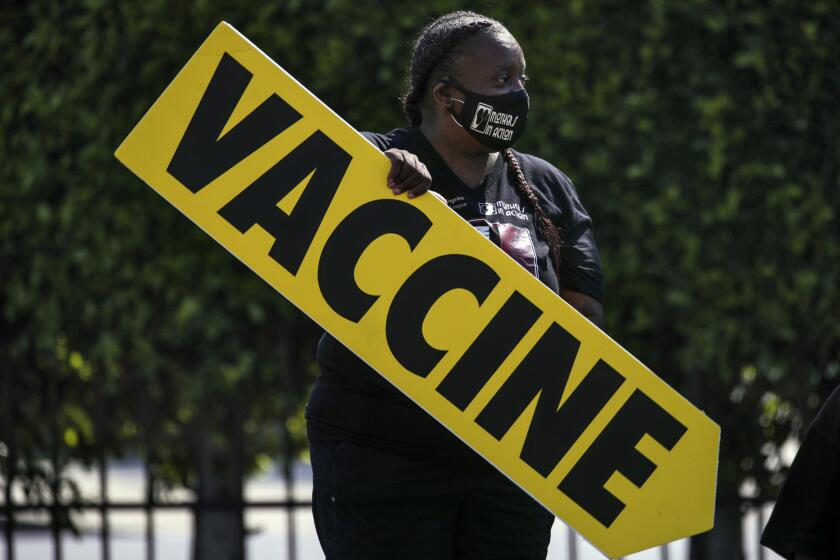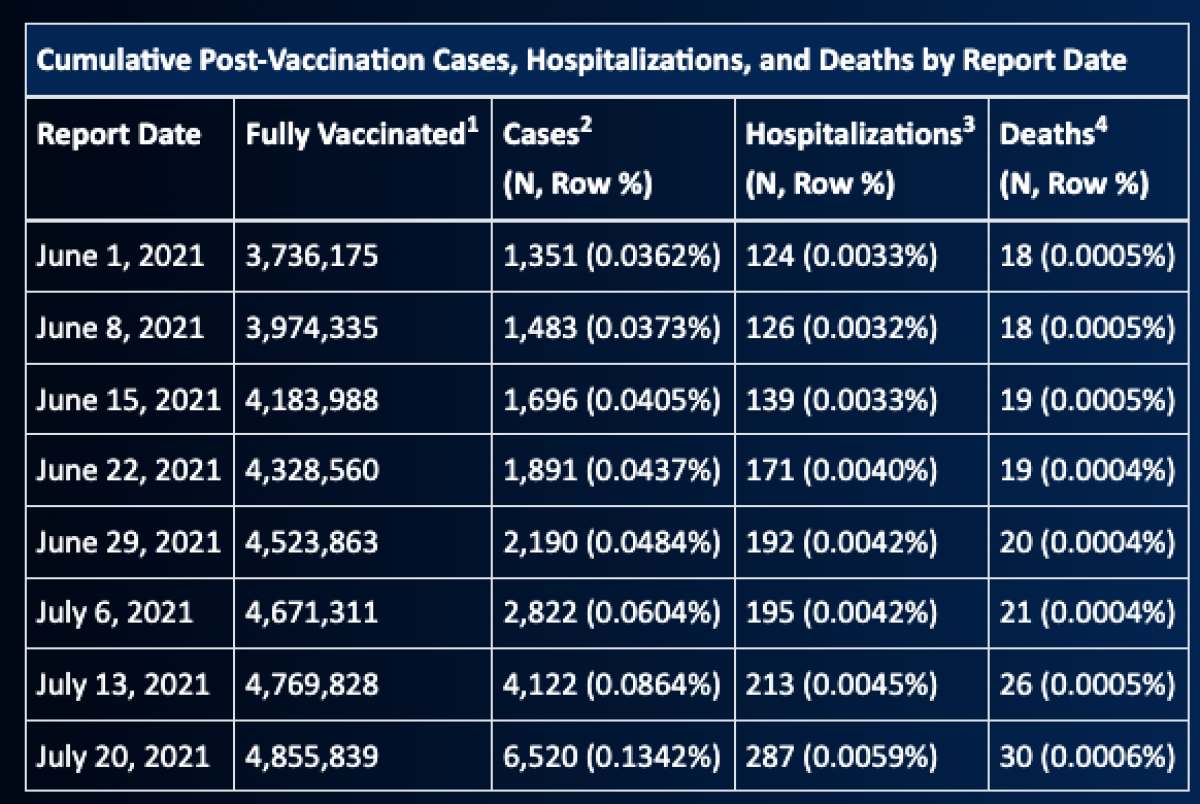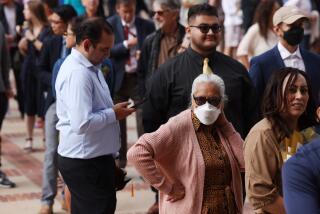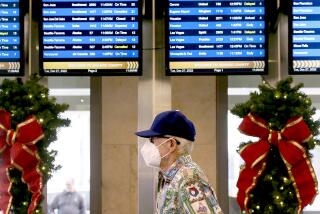20% of L.A. County’s coronavirus cases in June were among the vaccinated. Why that’s not surprising
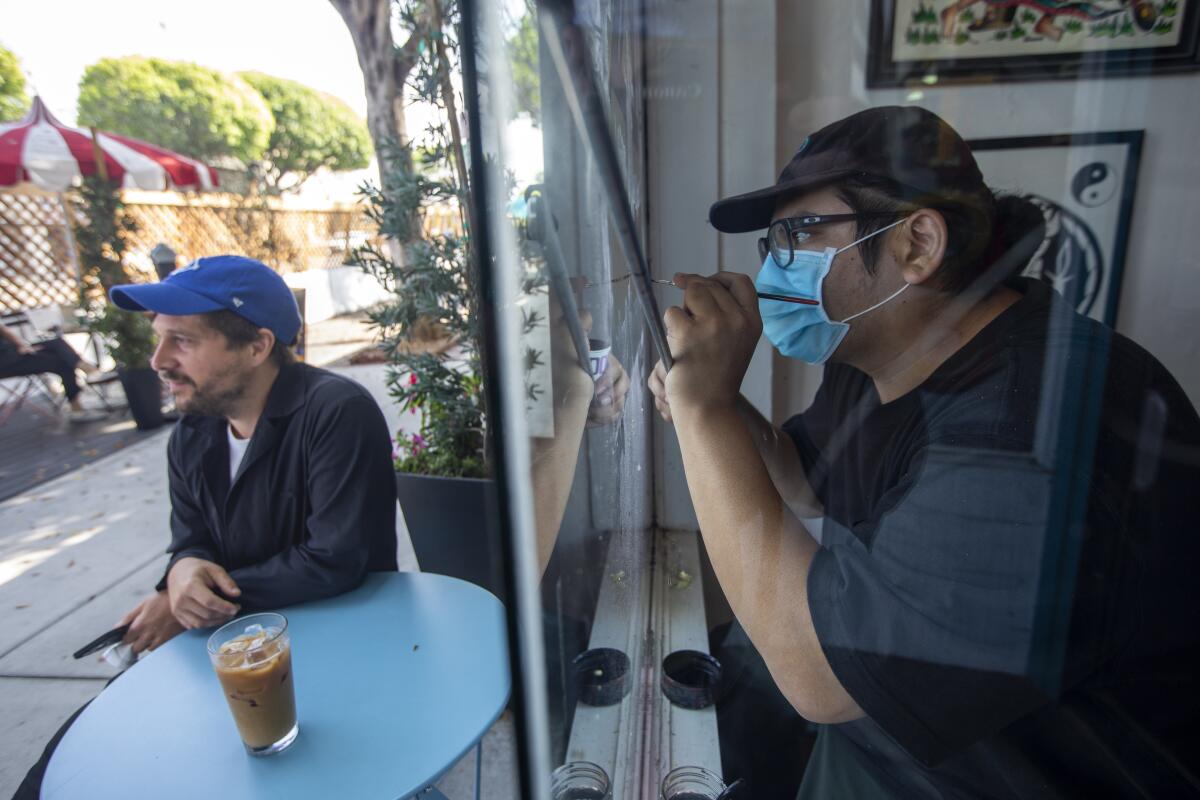
- Share via
In June, 20% of Los Angeles County’s coronavirus cases were among fully vaccinated residents. That’s up from May, when 11% of coronavirus cases were among that group.
Is this a cause for concern? Is something new happening here?
Actually, the development is not surprising to health experts, who say it’s to be expected — particularly when transmission substantially increases.
They stress the vaccines provide extraordinary protection against COVID-19, even the high infectious Delta variant. Moreover, they said, mass vaccinations have prevented what would otherwise been a much worse surge.
In June, 20% of Los Angeles County’s coronavirus cases were among fully vaccinated residents. But that doesn’t tell the full story.
What is going on?
When the coronavirus begins to spread more widely, it’s going to test the immune system of vaccinated people more often. And some people will be exposed to just enough coronavirus in their bodies that it might show up as an asymptomatic infection or a mild illness.
The more important factor, experts say, is whether someone eventually becomes sick enough that they need to go to the hospital. And the available data continue to support that the vaccines in use in the U.S. are highly effective on that score.
“Infections after vaccination are expected. No vaccine is 100% effective,” said Dr. Anthony Fauci, the U.S. government’s top infectious-diseases expert. “However, even if a vaccine does not completely protect against infection, it usually, if it’s successful, protects against serious disease.”
According to Fauci, it’s extraordinarily unusual for any kind of vaccine to be so thoroughly protective that it render a virus completely benign in all cases. (Part of the reason vaccines do such a good job of preventing diseases like polio and smallpox is that they’re taken by enough people to achieve herd immunity.)
Vaccines are still considered successful if they prevent a virus from causing a severe illness that leads to hospitalization or death, Fauci said.
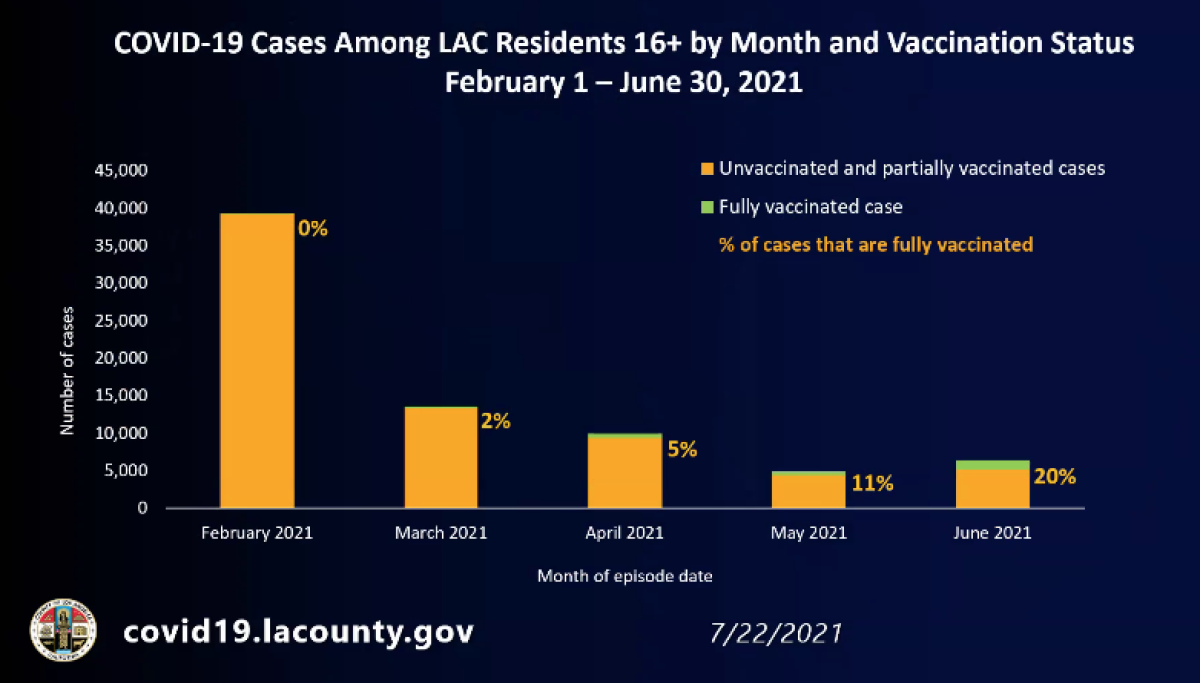
The L.A. County situation
According to a chart presented by the L.A. County Department of Public Health Thursday, there were roughly 1,000 coronavirus cases in June among people who were fully vaccinated — comprising 20% of all diagnosed infections during that time.
By the end of that month, roughly half of Angelenos had been fully vaccinated for COVID-19, data compiled by The Times show. That means the other, unvaccinated half of the county accounted for 80% of all new infections.
Overall, out of the more than 4.8 million L.A. County residents who have been fully vaccinated, 6,520 — about .13% — have later tested positive; 287 of them, roughly .006%, had to be hospitalized for COVID-19; and 30, .0006%, eventually died.
There were about 6,200 new coronavirus cases reported in L.A. County in June, according to a Times tally, far smaller than the 370,000 reported in December, the same month vaccines began to be made available to healthcare workers.
If that many L.A. County residents hadn’t been fully vaccinated for COVID-19, the total number of coronavirus cases would’ve been much higher in June, said Public Health Director Barbara Ferrer.
The vast majority of fully vaccinated people who later test positive for the coronavirus “only experienced either no illness or very mild illness,” she added.
“So, yes, if you are fully vaccinated, you have a lot of protection, which is what the vaccines have always been their best at: Protecting people from serious illness and death. And these vaccines are — even with the Delta variant — are holding up really well,” Ferrer said.
Getting an infection after being fully vaccination, she continued, means “your chances of both ending up in the hospital, ending up in an ICU, ending up intubated are much less than the chances of that happening if you’re somebody who is unvaccinated.”
“Even for those fully vaccinated people that get infected, they are much less likely to get as ill as unvaccinated people to require hospitalization and to pass away,” she said.
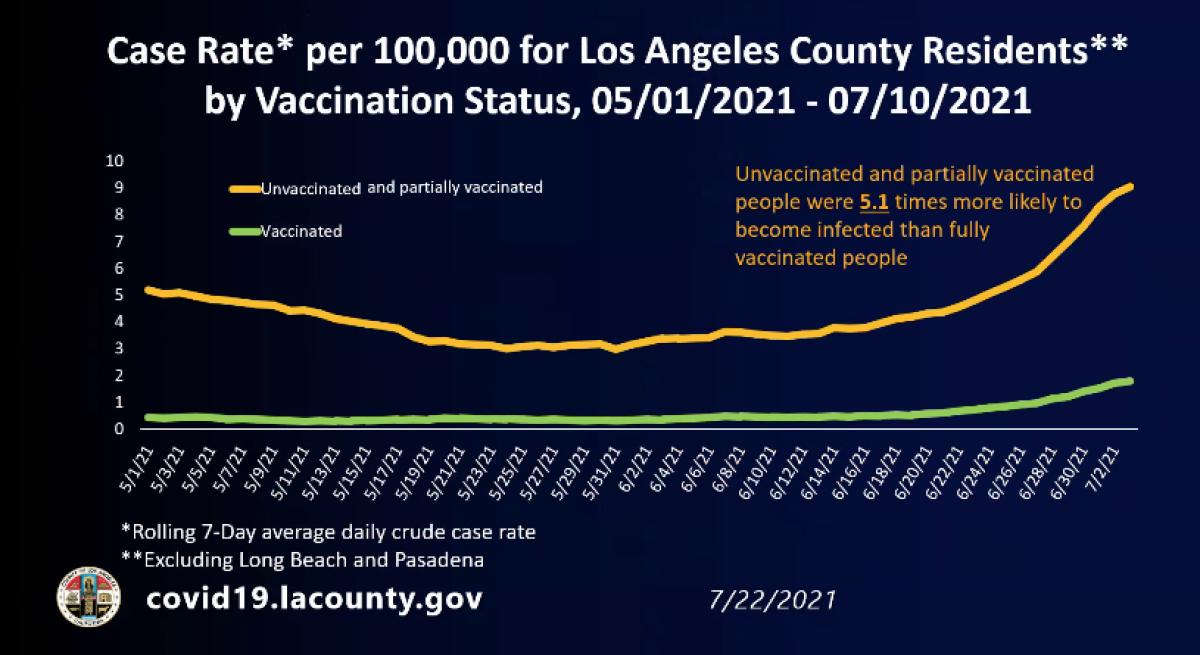
Unvaccinated at high risk
Data released by L.A. County show that unvaccinated and partially vaccinated people were nearly five times as likely to become infected than fully vaccinated people.
Among fully vaccinated people, there were about 27 coronavirus infections for every 100,000 county residents in June, according to figures presented Thursday. But among people not fully vaccinated, there were 125 infections for every 100,000 residents.
That month, there were also 2 fully vaccinated people hospitalized for every 100,000 residents — much smaller than the comparable rate, 11, for people not fully vaccinated.
“Case rates have risen precipitously among unvaccinated people. And while cases are also rising among vaccinated people, the increase is much smaller and much slower than it is in unvaccinated people,” Ferrer said. “Our county’s case rate would be likely much higher if we didn’t have so many vaccinated people.”
Deaths rates for both cohorts were very low, but still higher among those who were not fully vaccinated.
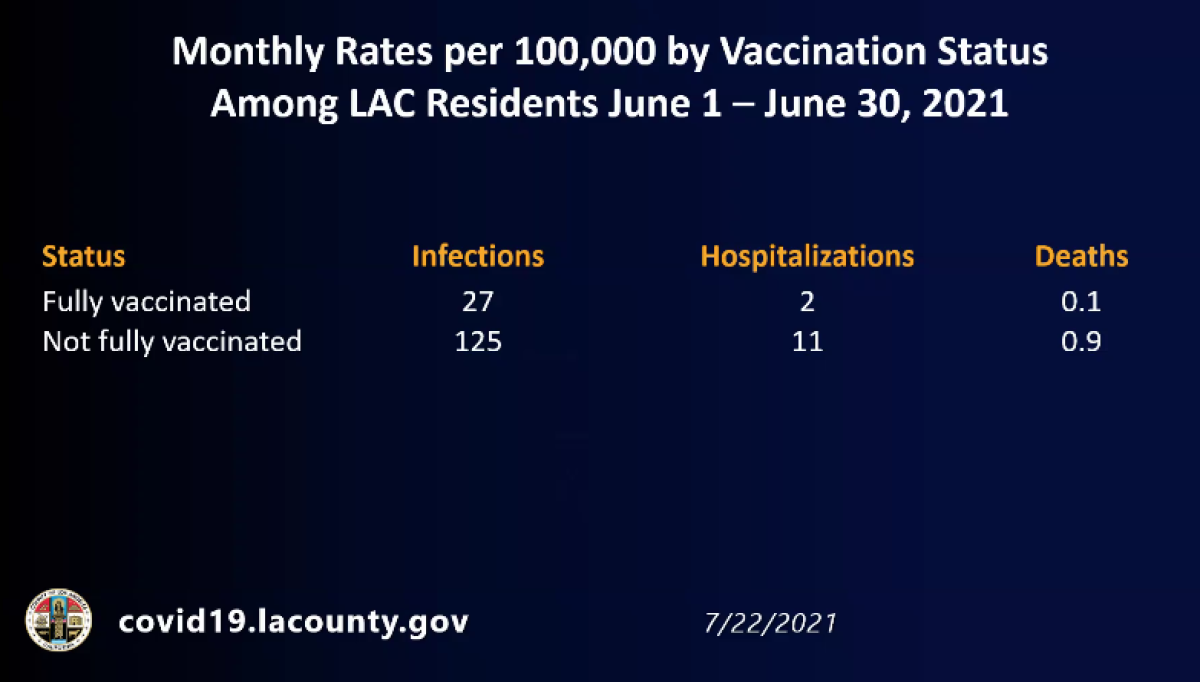
A limited spike?
Despite the new infection surge being seen in L.A. County, many experts don’t think the pattern seen earlier in the pandemic — spikes of cases triggering resulting waves of hospitalizations and deaths — will necessarily materialize this time around, as more than half of L.A. County’s residents are fully vaccinated.
“While vaccinated people can be reassured about the protection the vaccine gives you from severe COVID-19 disease, we cannot yet reassure you that, given the proliferation of the Delta variant, the vaccine protects you from infecting another person,” Ferrer said. “This is what masking up right now is really about: adding an extra layer of protection to prevent the heartache that comes from transmitting the virus to others.”
In Britain, where 54% of residents are fully vaccinated, officials there are reporting about 700 newly diagnosed coronavirus cases a day, not far off from its peak of 800 cases a day during the worst moment of its pandemic, Ferrer said. Yet the nation’s death rate is only one-thirtieth of what it was during its worst peak, and hospitalizations are relatively low.
In Israel, 58% of the population is fully vaccinated and daily cases have risen exponentially since mid-June, Ferrer said. But “daily deaths remain in the low single digits. Some level of community immunity seems to be protecting people in these countries as a whole from the kinds of mass tragedy we all witnessed earlier in this pandemic. And that is hopeful news, and it’s further proof to us that increasing vaccinations to as high a level as possible is our best way to get back to very low rates of community transmission.”
Ongoing data continue to demonstrate that the vaccines are highly effective against COVID-19, Fauci said, although certainly not 100% effective.
Studies show that the Pfizer-BioNTech and Moderna vaccines are, respectively, 95% and 94% effective against symptomatic COVID-19, while the Johnson & Johnson vaccine is 72% effective against clinically recognizable disease in the U.S.
“What we’re really dealing with is effectiveness against serious disease leading to hospitalization,” Fauci said. “Even though we are seeing infections after vaccination — referred commonly to as ‘breakthrough infections’ — the effectiveness against severe disease is still substantial, which is, yet again, another argument which all of us say continually: ‘Get vaccinated. It offers good protection against disease.’”
More to Read
Sign up for Essential California
The most important California stories and recommendations in your inbox every morning.
You may occasionally receive promotional content from the Los Angeles Times.
